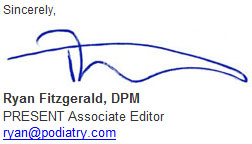In the last several years, the use of Evidence-based Medicine (EBM) has become increasingly vague as clinicians have attempted to improve the quality of care that is rendered by adhering to principles based in evidence. Simply put, Evidence-based medicine (EBM) or evidence-based practice (EBP) aims to apply the best available evidence gained from the scientific method to clinical decision making. Applying the principles of EBM, clinicians can critically evaluate the risks and benefits of the treatment modalities available to address each condition.
There has been some interesting dialogue recently in an eTalk thread on this topic that discusses the history of EBM, as well as current applications of the principle. Dr. Paul Kim offered an excellent summary of EBM in 2008 in a previous Residency Insight, when he noted:
What EBM is:
- A structured tool to answer a relevant clinical question for a specific patient with a specific problem.
- Meant to be used by a clinician in everyday practice.
- A process of asking a clinical question for a specific patient, conducting a literature search, selecting the best evidence, evaluating the best evidence, and formulating a treatment plan based on the best evidence.
What EBM is not:
- A stand alone literature review that is used to support a general idea or concept.
- The use of complicated, statistical analysis, hence out of reach for the typical clinician.
- A cumbersome tool that takes too long to apply.
- Applicable to any patient, in all situations.
- Disregards the specific patient’s unique values and circumstances.
- Disregards the specific clinician’s experience and expertise.
There is a shift in healthcare toward modalities which are based in scientific evidence – these evidence-based practices improve the quality of the care rendered to the patient, while also protecting the clinician by providing a reasoned, defensible position for why a certain surgical or diagnostic procedure was employed or therapeutic modality initiated. I would encourage each of you to critically evaluate your practice of podiatric medicine and surgery and determine how and why you select the various treatment paradigms that you employ in the management of your patients. Are those treatment modalities based in evidence, or are they based upon a subjective belief system that is based upon anecdotal experience.
You can visit acfas.org and follow the links in the 'EBM Modules' for further information.
I encourage you to share your thoughts and experiences with EBM on the current eTalk thread on this topic – We look forward to hearing from you!

Get a steady stream of all the NEW PRESENT Podiatry
eLearning by becoming our Facebook Fan.
Effective eLearning and a Colleague Network await you. |
 |
This ezine was made possible through the support of our sponsors: |
Grand Sponsor |
 |
|
| Diamond Sponsor |
 |
|
| |
Major Sponsors |
|
|
|
|
|
|
|
|
|
|
|
|
|
|
|
|
|
|
|
|
|
|
|
|
|
|
|
|
|
|
|